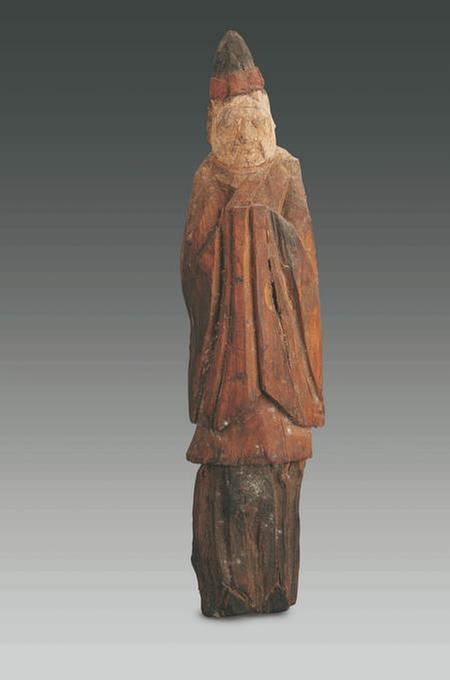The eternal emperor's road from glory to ashes

 |
| A wooden figurine from a funerary chest inside the burial chamber. [Photo provided to China Daily] |
When the Qing Dynasty's own demise beckoned two and a half centuries later, the Dingling Mausoleum again fell again into despair and was subject to pillaging. Today the only ground structure that can be traced back to the 16th century and has largely remained intact is the stone tower guarding the burial mound behind. (All the wooden palaces that used to sit in the courtyards are gone, the only remnants being some pillar foundations-telling signs of how grandiose they once were.)
Even the stone tower fell victim to the attrition of time. Trees have taken root in between the stone blocks that make up the wall and have extended their trunks and branches almost horizontally, parallel to the ground.
However, lying deep underground, the emperor had every reason not to bother with what was happening in the mortal world. That was until 1956, when all the tumult of contemporary Chinese history seemed to have ebbed. In May that year the excavation of Dingling Mausoleum started. One year later the excavation team entered Wanli's burial chamber and coffins belonging to him and his two empresses were opened.
Then came the "cultural revolution", the ideology-centered political movement from 1966 to 1976. Many renowned historians and archaeologists involved in the excavation of Dingling were persecuted, some to death.
The long-dead emperor was not immune from these upheavals. In 1966 his corpse, together with those of the empresses, were taken out of storage and burned. Later, people started to talk about a big downpour on the day of the burning. But to Yang Shi, 83, wife of Zhao Qichang, a principal member of the excavation team, such talk has more to do with the imagined fury of the emperor and less with reality.
"The reality is: A few years after that, my husband and some others went to the site where the burnings happened looking for anything that might have been left of the corpses, but with no success," she says. Zhao died in 2010.




































